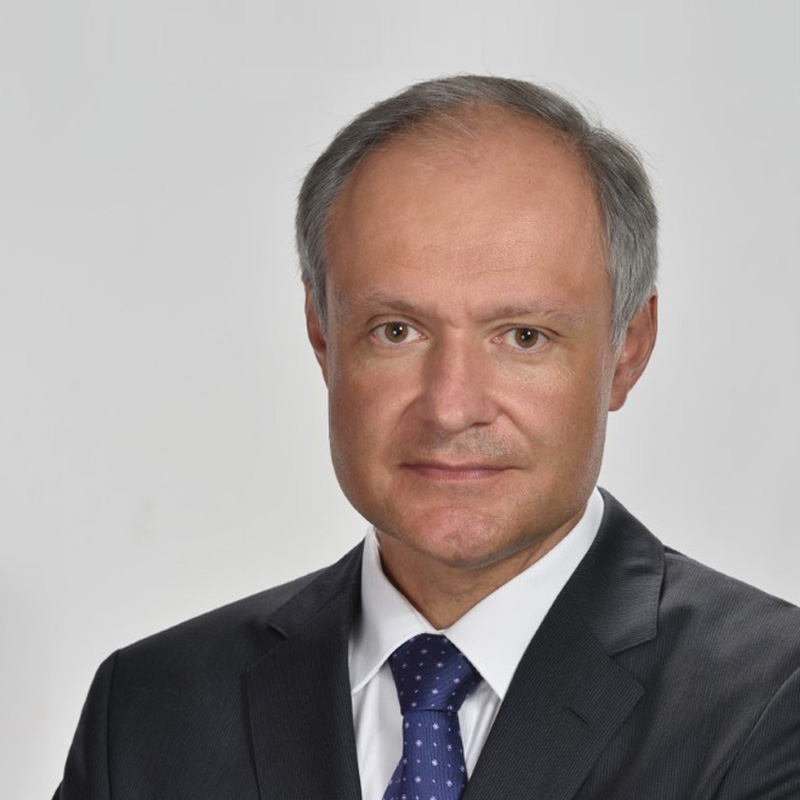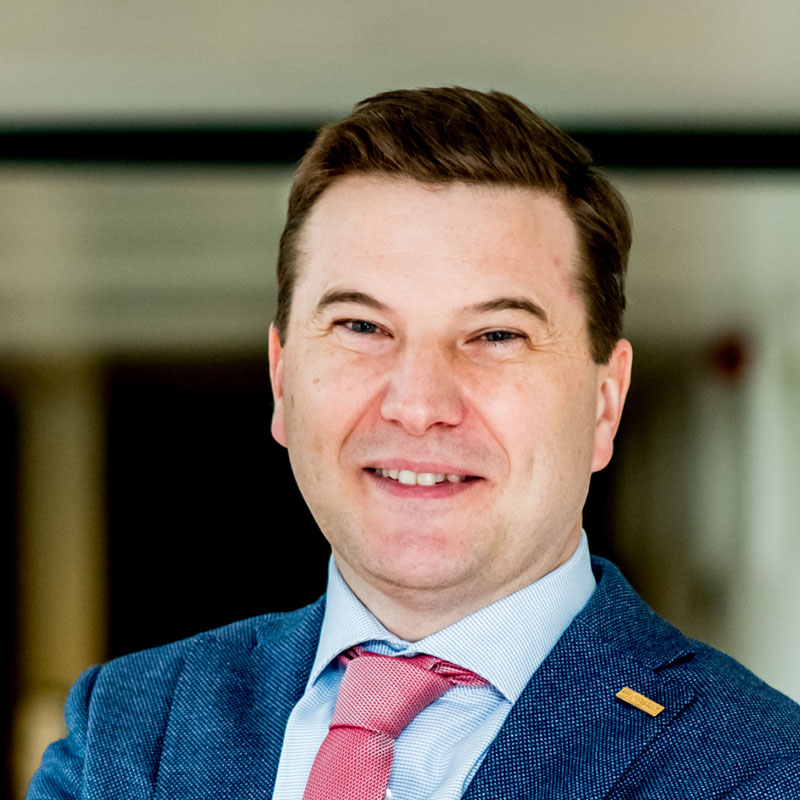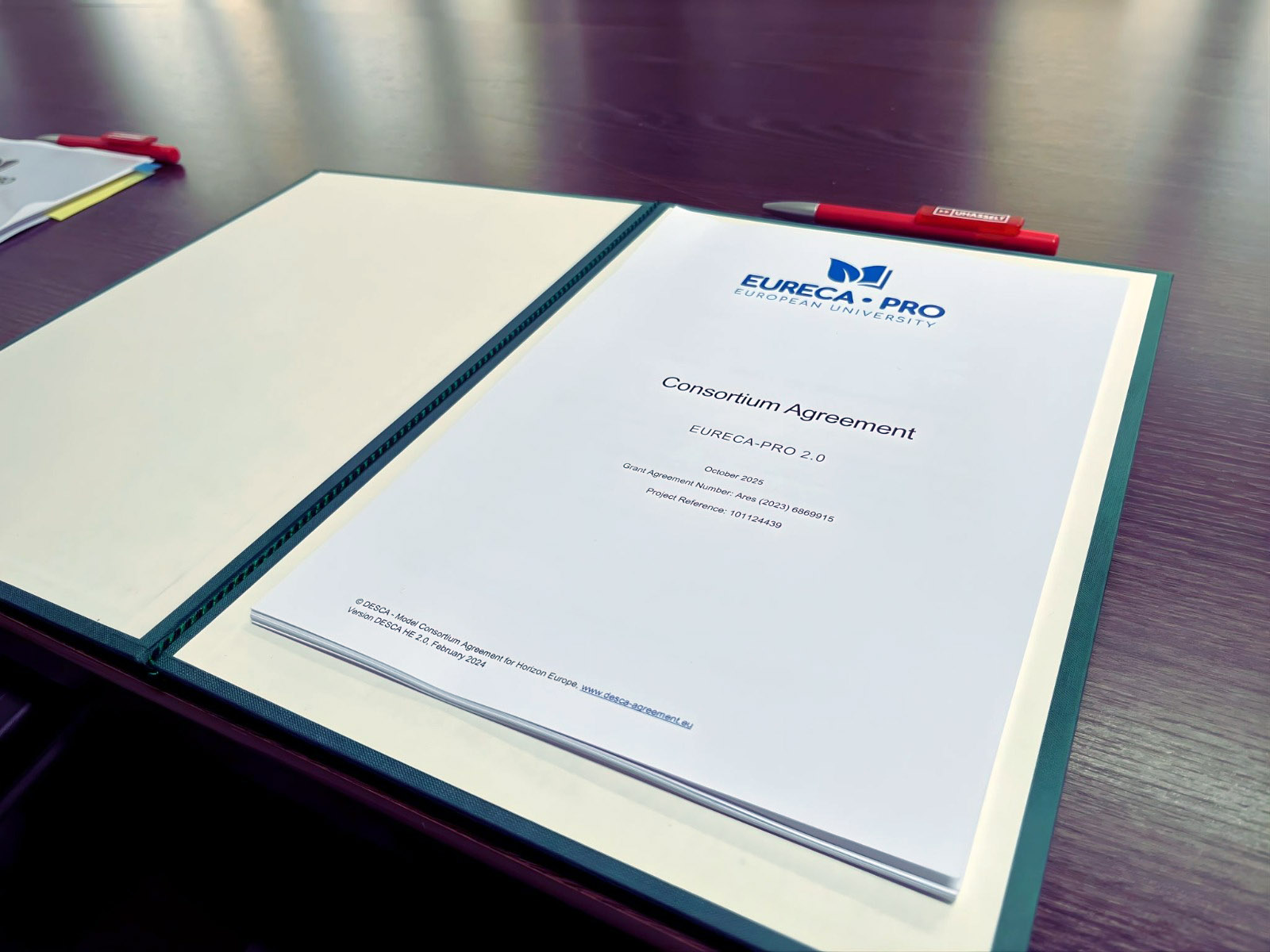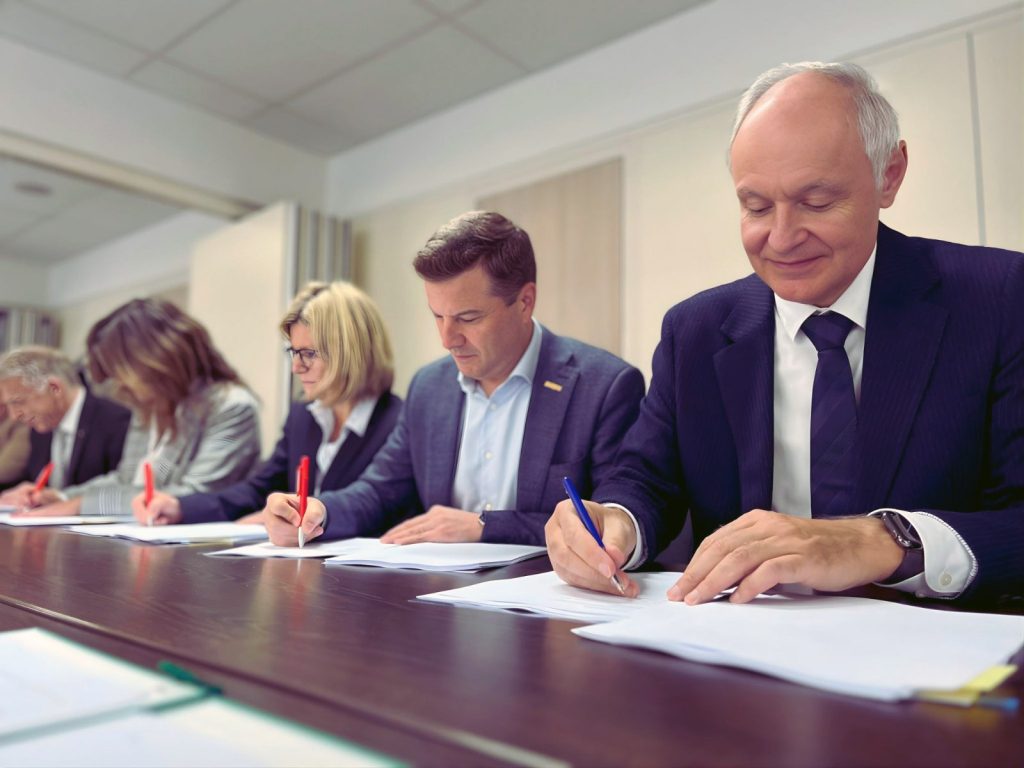Leaders of the nine EURECA-PRO universities met in Brussels on Monday, 27 October, and Tuesday, 28 October, for the autumn meeting of the Board of Rectors. The two-day programme combined decision-making with peer learning on alliance governance, including an in-depth session by Elena del Giorgio, Secretary General of 4EU+.
Decisions at a glance
Consortium Agreement signed.
All partner universities signed the updated Consortium Agreement, formalising their commitment to the next phase of the alliance.
Motivations mapping launched.
The Board of Rectors initiated a structured mapping of each university’s motivations for joining EURECA-PRO to align drivers and support one another’s priorities in the coming cycle.
Future governance discussed.
Rectors reviewed options for the evolving governance model, including the role a non-profit legal entity could play in coordination, operations, and representation.
Leadership follow-up.
The Board of Rectors agreed on a light distribution of roles among rectors to help monitor work strands and, crucially, inspire staff and students across the alliance.

Prof. Marek Pawelczyck
- “Signing the agreement is not a formality, it’s a promise to our students and researchers,” said Prof. Marek Pawelczyck, Rector of Silesian University of Technology. “We’re treating EURECA-PRO as a whole-university programme: open to every faculty, sustainable beyond any single project, and providing the stability that long-term European cooperation needs.”
Learning from peers: governance, capacity and impact
In her session, Elena del Giorgio (4EU+) shared insights from a mature European University alliance:
- Mirror-the-university governance (Rectors’ Board, Academic Council, Student Committee, Flagship/Programme Committees) helps achieve recognition internally, although national differences, such as in student representation, require careful design.
- A legal entity with a strong secretariat can sit at the core, balancing strategy and operations; predictable, multi-year resourcing is essential to avoid capacity and burnout risks.
- Local Offices function as meso-hubs that connect central governance with academic communities; the most effective setups include financial expertise and regular whole-university coordination.
- Impact is transmitted through joint programmes, policy pilots (e.g., micro-credentials), and measurable proxies, such as co-publications, Horizon bids, and joint PhDs.

Prof. Jutta Emes
- “For us, the European idea is not abstract,” noted Prof. Jutta Emes, Rector of TU Bergakademie Freiberg. “It is embedded in our responsibility for sustainable consumption and production and the raw-materials value chain. EURECA-PRO connects complementary strengths — mining and circularity among them — and enables our students to carry that mindset into the world.”
Why it matters now
EURECA-PRO’s mission on responsible consumption and production sits at the intersection of societal need and technological innovation.
The Brussels meeting of the Board of Rectors clarified how Education, Research, Innovation & Outreach will be steered in the next period: continuing bottom-up energy (seed funding, staff exchanges) while strengthening portfolio coordination across the flagship themes.

Prof. Volker Tolkmitt
- “For me, EURECA-PRO is a vital step for Europe and its people,” said Prof. Volker Tolkmitt, Rector of Mittweida University of Applied Sciences. “Through this alliance, we can bring together science, research and teaching across borders, giving the next generation a positive, shared perspective for Europe. By linking sustainable consumption and production with innovative technology, we can strengthen both our competitiveness and our common values: freedom of speech, freedom of research and freedom of teaching.”
Academic freedom and shared values

Prof. Bernard Vanheusden
-
Prof. Bernard Vanheusden, Rector of Hasselt University, remarked:
“European alliances only thrive when academic freedom is fundamental in everyday practice: freedom of research, teaching and speech. Our commitment today is to a model of governance that protects academic freedom, encourages constructive debate, and translates it into better science, education and policy.”
Sense of optimism
From decisions to delivery: the road ahead
In the coming months, the motivations mapping launched by the Board of Rectors will be completed with all partners and translated into a concise set of shared priorities and tailored support offers. In parallel, a rectors’ working group will outline practical options for the future role and resourcing of the legal entity, ensuring efficient coordination without overloading central teams.
Flagship leads and Local Offices will also pilot lightweight monitoring of collaboration outputs such as joint courses, proposals, and publications, to provide an early evidence base for the spring meeting of the Board of Rectors.
The Brussels meeting closed with a shared sense of optimism that, through collaboration, trust, and academic freedom, EURECA-PRO can help build a stronger, more united Europe of knowledge.






